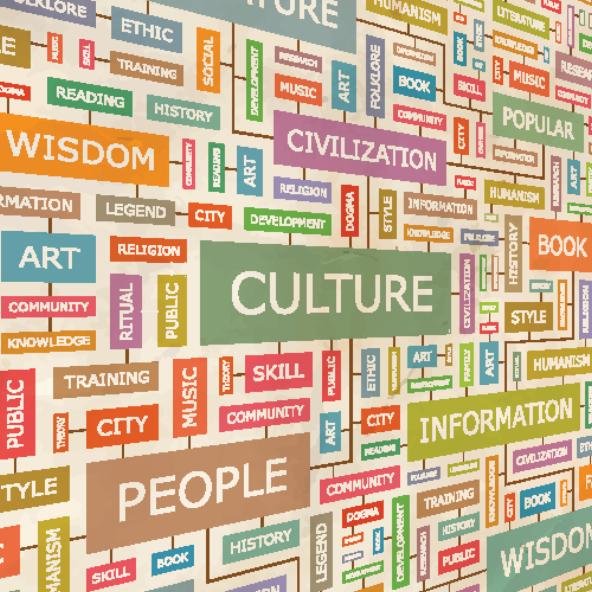In the private corridors of our minds, there exist conversations often shrouded in silence and cloaked in societal discomfort. One such dialogue revolves around a natural act as old as humanity itself—masturbation. Despite its ubiquity, discussions on this subject are frequently met with hushed tones and uneasy glances. The whispering taboo can sometimes feel like a looming shadow, preventing open, informative discourse.
In this article, we aim to pierce through the veil of discomfort, emboldening readers to explore the topic with ease and candor. By dissecting cultural stigmas, addressing common misconceptions, and embracing a more enlightened perspective, we venture into the heart of why masturbation should be discussed without reservation. Join us as we unravel the knots of silence and step into a space where curiosity and understanding illuminate paths previously hidden in the darkness of societal taboo.
Table of Contents
- Embracing Openness: The Benefits of Normalizing Self-Pleasure
- Understanding Cultural Perspectives: A Global Look at Masturbation
- Effective Communication: How to Talk About Masturbation with Kids and Adults
- Creating Safe Spaces: Fostering Healthy Discussions in Schools and Communities
- Q&A
- Concluding Remarks

Embracing Openness: The Benefits of Normalizing Self-Pleasure
In a society where discussing self-pleasure often carries unnecessary stigma, embracing openness can serve as a significant step towards personal well-being. Recognizing masturbation as a natural and healthy part of human sexuality has several benefits. Firstly, it promotes **better self-understanding**. Learning what feels good can translate into improved intimate relationships, as individuals are more comfortable communicating their needs to their partners. Additionally, self-pleasure can offer substantial relief from stress and anxiety, acting as a natural form of relaxation. Understanding these advantages helps dismantle age-old taboos and creates a more accepting environment.
Beyond mental and emotional benefits, normalizing this conversation enhances one’s overall sexual health. **Regular self-pleasure** can lead to improved sleep, increased immunity, and reduced menstrual cramps for those who menstruate. Furthermore, it can build body positivity and self-esteem. By discussing these topics openly, we debunk myths and foster an inclusive space where everyone feels comfortable exploring their bodies. Here are some quick takeaways:
-
- Better self-understanding
-
- Natural stress relief
-
- Improved sleep quality
-
- Enhanced body positivity
| Benefit | Description |
|---|---|
| Stress Relief | Natural way to reduce anxiety |
| Improved Sleep | Helps in getting better rest |
| Body Positivity | Encourages self-love and acceptance |

Understanding Cultural Perspectives: A Global Look at Masturbation
Masturbation, a subject often shrouded in secrecy, carries different connotations across various cultures. In some cultures, it’s approached with clinical detachment, while in others, it’s regarded as a spiritual practice. For example, in ancient Greece, it was viewed as a natural and healthy part of life, and even instructed as part of youth education. In contrast, many Middle Eastern societies hold conservative views, often invoking religious contexts that define masturbation as morally inappropriate behavior. These diverse perspectives shed light on how cultural and societal constructs shape attitudes and dialogues around this natural human act.
Here are some intriguing cultural takes on masturbation:
-
- Japan: Known for a more open discussion, Japan has no lack of educational resources and creativity in addressing the subject.
-
- India: Although historical texts like the Kama Sutra mention self-pleasure, modern Indian society often treats it as taboo, surrounded by silence and shame.
-
- Scandinavia: Generally progressive, Scandinavian countries often regard masturbation as an essential part of sexual health and education.
To provide a quick glimpse of these cultural perspectives, let’s look at the table below:
| Culture | Perspective on Masturbation |
|---|---|
| Ancient Greece | Healthy and Natural |
| Middle East | Morally Inappropriate |
| Japan | Open and Creative |
| India | Taboo and Restricted |
| Scandinavia | Progressive and Essential |
Effective Communication: How to Talk About Masturbation with Kids and Adults
When engaging in conversations about masturbation, it’s essential to approach the topic with sensitivity and openness. **For kids**, the discussion should be age-appropriate, focusing on the basics of anatomy and privacy. Emphasize that masturbation is a natural part of exploring one’s body and that it’s okay to have questions. Reiterate the importance of privacy, making sure they understand that these activities are private and not to be discussed or shared with others in inappropriate settings. You might use analogies and simple language to convey your message clearly.
**For adults**, the conversation can be approached more directly, acknowledging that masturbation is a common and healthy practice. Encourage open dialogue about any concerns or misconceptions they might have. Normalize the topic by sharing that many people, regardless of gender or age, engage in masturbation. To further break down barriers, you might share information on the **benefits** of masturbation to comfort and reassure them. Here is a brief table summarizing some key points for adults:
| Benefit | Description |
| Stress Relief | Helps reduce tension and anxiety. |
| Sleep Aid | Can improve sleep quality. |
| Health Benefits | Improves sexual health and function. |

Creating Safe Spaces: Fostering Healthy Discussions in Schools and Communities
Navigating conversations around masturbation in educational and community settings may feel like tiptoeing through a minefield. However, it’s essential to dismantle taboos and establish spaces where these topics can be addressed comfortably and informatively. Schools and communities can adopt various strategies to encourage open dialogue on the subject. These strategies include:
-
- Inclusive workshops: Craft workshops that are inclusive and prioritize sensitivity and respect.
-
- Resource availability: Provide access to scientifically backed resources that debunk myths and misconceptions.
-
- Confidentiality assurance: Create an environment where privacy is respected, ensuring individuals feel safe sharing their thoughts and questions.
A practical approach to fostering these safe spaces can be through structured and informal discussions facilitated by trained educators and community leaders. Consider the following format for such sessions:
| Session Component | Details |
|---|---|
| Ice-Breaker Activities | Start with activities to lighten the mood and make participants comfortable. |
| Open Q&A | Allow anonymous questions to be addressed openly by the facilitator. |
| Resource Sharing | Distribute informative materials and links for further private reading. |
This early engagement forms a foundation of trust and normalizes the conversation, making it easier to tackle more complex questions as they arise. Implementing these elements in a supportive and non-judgmental manner ensures that the essential dialogue about masturbation can occur naturally and constructively.
Q&A
Q: What is the primary focus of the article “Breaking Taboos: Discussing Masturbation with Ease”?
A: The primary focus of the article is to shed light on the often stigmatized topic of masturbation, encouraging open and honest discussions. It aims to dismantle the taboos surrounding the subject by providing factual information, debunking myths, and exploring the benefits of shedding the secrecy.
Q: Why is it important to break the taboo surrounding masturbation?
A: Breaking the taboo is vital for promoting sexual health, self-awareness, and mental well-being. Open conversations about masturbation can help individuals understand their bodies better, reduce shame and guilt associated with the act, and foster healthier relationships with themselves and others.
Q: How does the article propose to address common misconceptions about masturbation?
A: The article proposes to address misconceptions by presenting scientific evidence and expert opinions. It highlights that masturbation is a natural and safe practice, countering myths such as it leading to physical or mental harm. By offering a factual perspective, the article aims to replace fear and misinformation with knowledge and confidence.
Q: Can you mention any benefits of discussing masturbation openly, as outlined in the article?
A: Yes, the article outlines several benefits to discussing masturbation openly:
-
- Enhanced Self-Understanding: It helps individuals explore their sexual preferences and boundaries in a safe, personal space.
-
- Reduction of Shame and Guilt: Open discussions can normalize the practice, alleviating unnecessary feelings of shame or guilt.
-
- Improved Communication: It paves the way for better communication about sexual health and desires between partners, leading to more fulfilling intimate relationships.
-
- Promotion of Sexual Health: Awareness and education about masturbation can lead to better sexual health practices and reduced risk of sexually transmitted infections (STIs).
Q: What role does education play in breaking the taboos around masturbation?
A: Education plays a crucial role by providing accurate information and creating a platform for open dialogue. Comprehensive sexual education programs that include masturbation can help demystify the subject, promote healthy behaviors, and dispel harmful myths from a young age.
Q: How can parents and educators approach the topic of masturbation with ease, according to the article?
A: Parents and educators can approach the topic with ease by adopting a non-judgmental, open-minded attitude. The article suggests starting the conversation early with age-appropriate language, fostering an environment where questions are welcomed, and using educational resources to guide discussions. Being informed and approachable helps normalize the conversation, making it easier for young people to seek advice and information.
Q: What message does the article hope to leave with its readers?
A: The article hopes to leave readers with the message that masturbation is a natural part of human sexuality that deserves honest and open discussion. By breaking the associated taboos, individuals can achieve greater self-awareness, healthier sexual practices, and a more positive outlook on their sexuality.
Concluding Remarks
As we step away from the shadows of silence and into the light of open conversation, discussing masturbation with ease becomes not just a possibility, but a path to greater understanding and acceptance. The barriers we break today become the stepping stones for a future where dialogue thrives and taboos dissolve. So, as you carry these conversations forward, remember that it is through the sharing of our most human experiences that we cultivate empathy and nurture a culture of respect. Here’s to breaking taboos and building bridges—one honest conversation at a time.
0 Comments